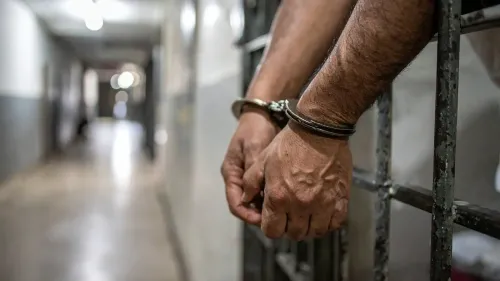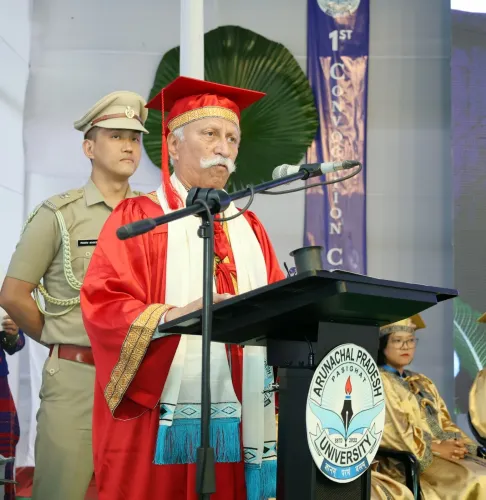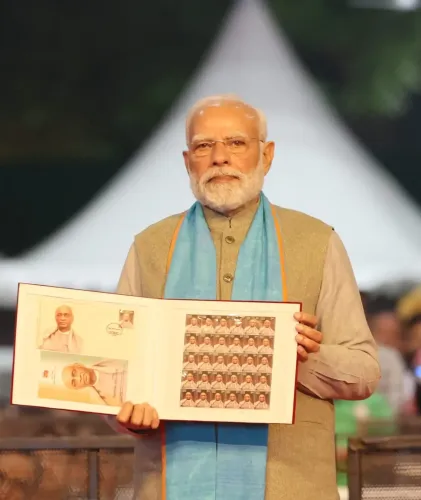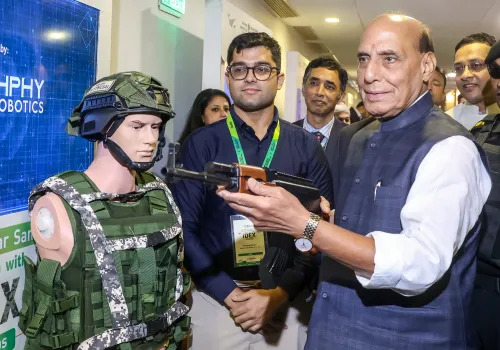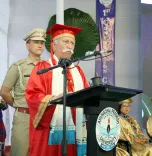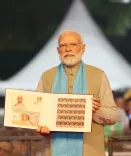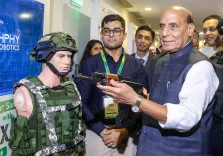How Are India and Japan Strengthening Maritime Relations?
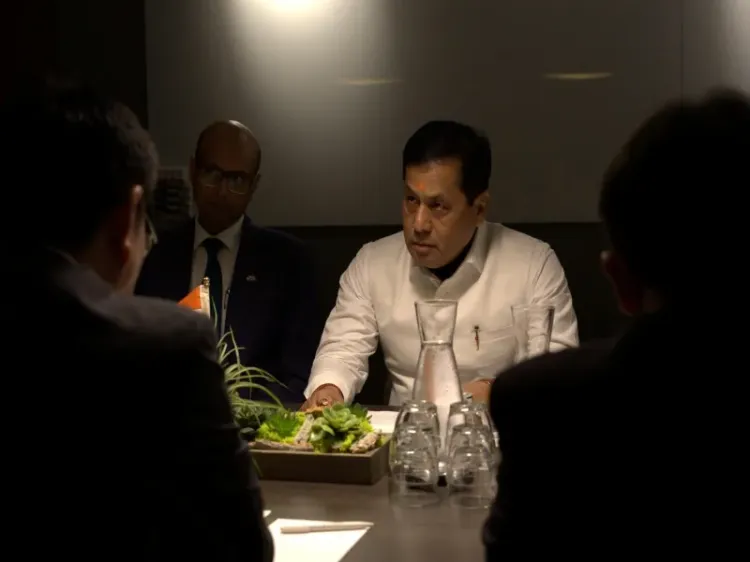
Synopsis
Key Takeaways
- Strengthened Maritime Cooperation: India and Japan are enhancing collaboration in shipbuilding and maritime training.
- Focus on Sustainability: The discussions emphasized the use of sustainable technologies in developing Smart Islands.
- Investment Opportunities: Japan is interested in investing in Indian shipyards and port digitization.
- Human Resource Development: India has a skilled workforce ready to support Japan's maritime sector.
- Cultural Ties: The historical relationship between the two nations strengthens their partnership.
Oslo, June 2 (NationPress) In a significant move to enhance maritime cooperation, India’s Minister of Ports and Shipping, Sarbananda Sonowal, engaged in a bilateral meeting with Terada Yoshimichi, Japan’s Vice Minister, on Monday. The focus was on strengthening collaboration in shipbuilding, port management, smart islands, and maritime training for a sustainable future.
The discussions between Sonowal and Yoshimichi, who oversees International Affairs at the Ministry of Land, Infrastructure, Transport & Tourism (MLITT), aimed to deepen maritime ties through various initiatives, including investments from Japanese shipyards, port digitization, and green port projects. They also highlighted the importance of enhancing R&D cooperation, improving human resource skills, and employing Indian seafarers in Japan, as stated in an official announcement.
Both ministers explored the implementation of sustainable technologies, disaster-resilient infrastructure, and improved connectivity to transform the Andaman Nicobar and Lakshadweep islands into Smart Islands.
Recognizing Japan's extensive experience in developing island territories, Sonowal remarked: "Japan’s expertise in this domain is immensely appreciated. We envision collaboration in the Andaman & Nicobar and Lakshadweep islands, especially in renewable energy deployment, smart mobility systems, and digital infrastructure. These efforts will bolster our mutual commitment to ecological preservation and maritime security in the region."
The meeting also prioritized the expansion of partnerships between Indian and Japanese shipyards, including greenfield investments like Imabari Shipbuilding in Andhra Pradesh. They assessed opportunities for co-developing ports and maritime industrial clusters as clean energy hubs to foster mutual benefits.
Sonowal expressed India's eagerness to invite Japan's leading shipbuilding firms, such as Imabari Shipbuilding, JMUC, Kanagawa Dockyard, and Mitsubishi Heavy Industries, to explore joint ventures with Indian shipyards.
During the meeting, Sonowal emphasized: "The longstanding relationship between India and Japan is rooted in spiritual connections and robust cultural ties. Our collaboration within the Quad framework and the India-Japan-Australia Supply Chain Resilience Initiative underscores our shared goal of enhancing regional maritime security and economic integration. India acknowledges Japan’s leadership in initiatives like the International Solar Alliance, Coalition for Disaster Resilient Infrastructure, and the Leadership Group for Industry Transition."
As India progresses to revitalize its maritime sector under Prime Minister Narendra Modi, the nation is advancing its port infrastructure, promoting green shipping, enhancing shipbuilding, and implementing digital transformation under the Maritime India Vision 2030. India is keen on Japan's involvement in these transformative projects.
Yoshimichi indicated Japan's previous engagement in developing railway infrastructure in India and expressed strong interest in collaborating within the maritime sector. Discussions around shipbuilding and maritime training were met with a positive outlook, and he conveyed satisfaction with the outcomes of their talks.
Both sides recognized the necessity of strengthening bilateral relations in maritime training, development, and research, agreeing to further enhance collaboration concerning sustainable maritime technologies and next-generation ship design.
Sonowal indicated India’s intent to establish a Memorandum of Understanding (MoU) with Japan, involving Cochin Shipyard Limited (CSL), Indian universities, and public organizations.
Highlighting India’s skilled workforce, Sonowal stated: "India boasts over 154,000 trained seafarers, ready to support and complement Japan’s maritime workforce. We are eager to facilitate Japanese maritime companies in training Indian engineers and workers through structured programs."
Sonowal remarked: "We cherish our relationship with Japan. Under PM Modi’s guidance, India aims for investments reaching five trillion yen (approximately Rs 3.2 lakh crore) by 2027. We will closely collaborate with Japan toward a sustainable future, driven by our shared vision of advanced maritime cooperation that greatly benefits both nations and contributes to global advancement."
The Union Minister also proposed a partnership with Japan concerning India’s Maritime Heritage Museum (NMHC) project in Lothal, Gujarat, which will serve as a premier destination for heritage tourism, education, and research within the maritime field.
Furthermore, he invited Vice Minister Terada Yoshimichi to participate in the India Maritime Week, set to take place from October 27th to 31st, 2025, in Mumbai.

